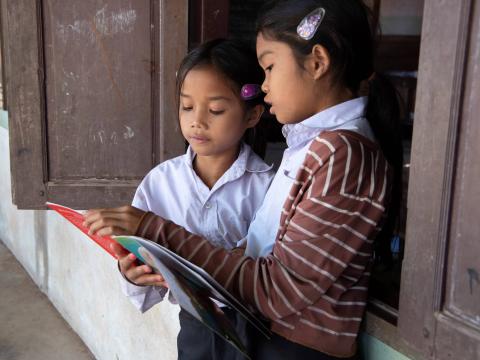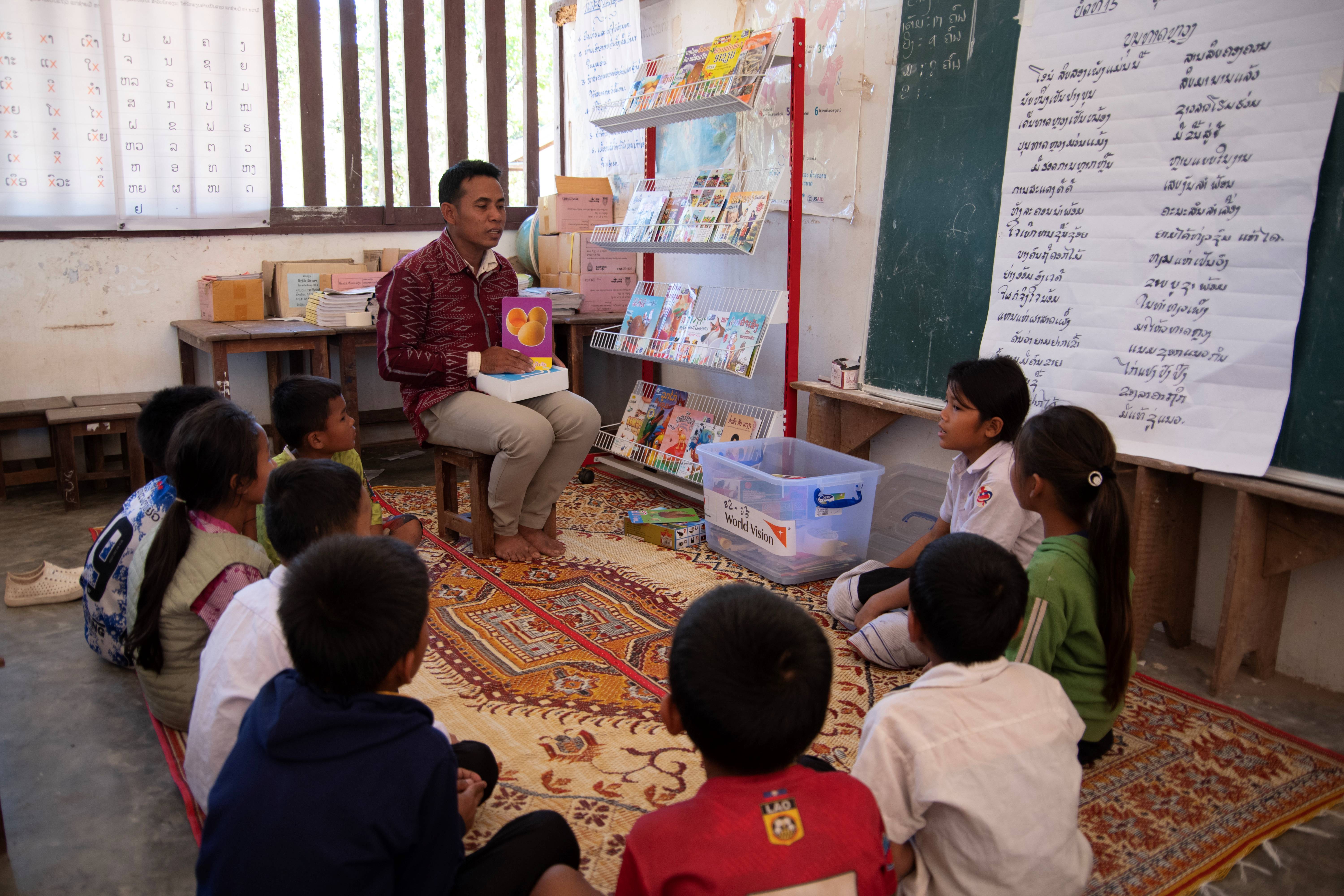Solutions to Laos' education struggles can be raised from within

On this International Day of Education 2024, Monami Kozono, an Education Project Manager for World Vision, reflects on the challenges faced in education in rural communities and shares the promising practices she witnessed during her visit to Toomlan District, Saravane Province, last December.
“We want to improve our teaching for our students. We just don’t know how.”
This was one of the first comments I heard from teachers in Toomlan District, Salavan Province. Several months later, I now recall this statement as a representation of both the unique challenges of education in rural Laos and the hope for its improvement.
In Toomlan District, the vast majority of the population consists of ethnic minority groups that have unique languages with no written form. It creates a great barrier to education when children encounter the Lao language only when entering school. Indeed, a decade ago, only 12% of the district’s population was completing primary education[1]. Despite sharp progress since then, more recent figures still highlight clear needs to support the education system in the district, with only 36% of school-aged children enrolled, 61% of them completing primary school, according to the World Bank[2]. All these indicators are far below the national average of respectively 91%, and 89%. Behind those numbers, the unfamiliarity of the Lao language or the act of reading can lead children to lose interest in school, with the majority of their parents not reaching the end of primary school ten years ago and lacking fundamental Lao literacy to support them at home. These issues are not exclusive to Toomlan, with similar cases in districts located in the North, Central, and Southern parts of Laos, where 49 ethnic minority groups live.
On the other hand, teachers are feeling frustrated and helpless with a lack of effective teaching skills to prevent this. By talking with them further, it came to light that they face more complicated challenges.
A significant number of students tend to miss classes during farming seasons. Parents who work on farmland away from home take their children with them. These students would miss several weeks' worth of school which may result in them falling behind and giving up on further education. On top of these local challenges, Laos faces nationwide issues such as the teacher shortage and economic struggle, that cannot be easily resolved by activities from a single project.
As it turns out, it is the teachers and the community people who have provided us with hints:
1. Encouraging peer-learning
One school with the most well-performing students shares that they paired up the high- and low-performing students to encourage peer support. Students here study and read books together during recess, motivated by peer support and positive competition among themselves.
2. Building on the successes of existing structures
Another village prides itself on zero out-of-school children, which was achieved by the strong collaboration between the school and the village development committee. Its representative says, “I want my children to do better in life and education will benefit them. But they will be bored without friends at school. So, we started working with teachers to follow-up children absent from the school.” Several other teachers share that they take hints from the internet to make an inviting environment in their classroom.

3. Increasing investments in human capital
Many schools implement multi-grade teaching. Interestingly, more schools than I expected have received support from different organisations to build school buildings. Rather than the lack of classrooms, it is often the insufficient number of teachers that results in them teaching two or three grades at once. They either move back and forth between rooms or teach different topics in the same room. This makes it much more difficult for teachers to employ new methods or tools.
“We want to improve but do not know how”—True to their words, we already observed promising improvements in several months since our iSTUDY project trained teachers with new skills. World Vision’s approaches are set to aim for a wider and long-lasting impact that brings transformational development to the community for the sustained well-being of children. With iSTUDY, a 3-year project funded by the Ministry of Foreign Affairs of Japan, World Vision wants to ensure students read with comprehension and fluency in Lao, with a special focus on the disadvantaged and gender equality. One of the project’s main pillars is training teachers on the method of teaching the government’s curriculum in a fun and engaging way. Through training and supportive supervision from the counterparts of the Ministry of Education and Sports, we aim to support teachers on the “how” of improving their teaching.
We hope not only to provide knowledge and equipment to the schools in Toomlan District but also to amplify the good practices that already exist in the district to help teachers find their answers to this comment. More often than not, the key to this achievement lies within the community.
We want to see teachers enjoying their roles and interactions with their students, we want to see children thriving in their classrooms and blossoming into a new generation of lifelong learners in Lao rural areas.
We want to see promising futures for the communities we work with, and equal opportunities for boys and girls to fulfil their potential, in a future where peace lasts.
About the author
Monami Kozono is the Project Manager of “Improve Learning Outcome for Early Education and Primary School Children (iSTUDY Project) in Toomlan District, Salavan Province, funded by the Government of Japan and World Vision Japan.
She joined World Vision Japan in 2017 and was part of the management team for a multi-year Private Grant Project in Bangladesh, India, and Nepal as well as Area Programmes and small Private Non-Sponsorship Projects. Before her current position, Monami was based in Hanoi, Vietnam as the Project Manager of a Government Grant Project for the prevention of trafficking in persons. Monami graduated Master's Degree (MA) in Peace Studies, at the University of Bradford, United Kingdom, and a Bachelor's Degree in Global Political Science and Economy, Waseda University, Japan.
[1] Population and Housing Census, Lao PDR (2015)